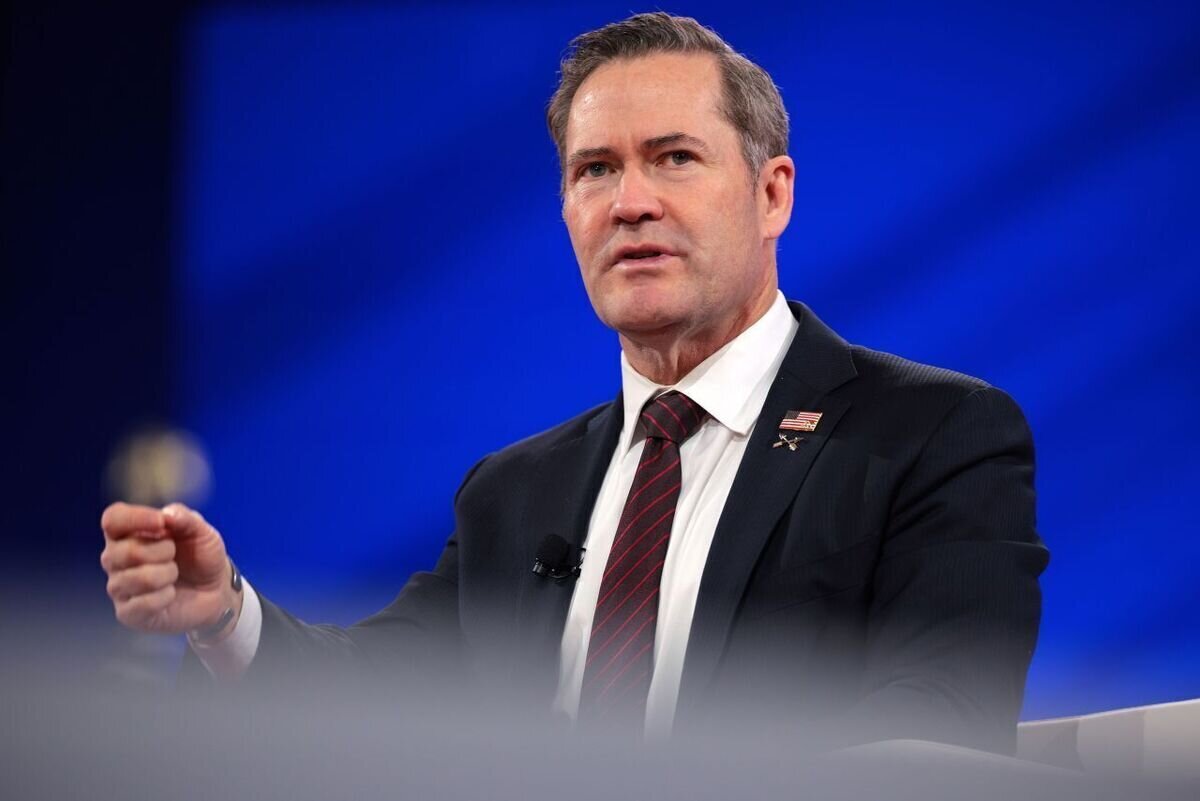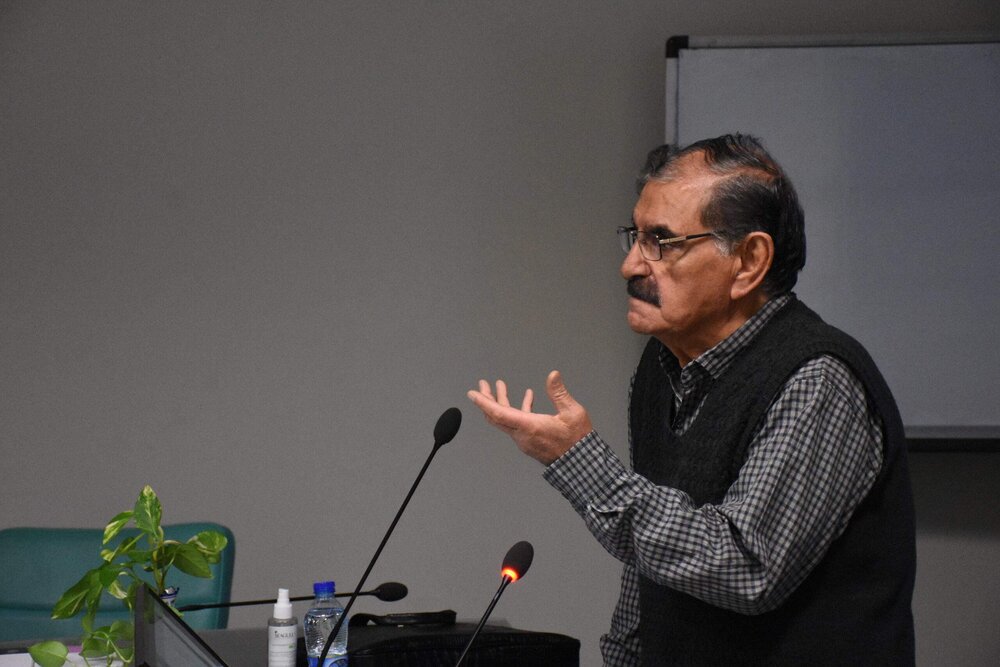'Colonial thinking': The pitfalls of Trump's 20-point Gaza plan
'Colonial thinking': The pitfalls of Trump's 20-point Gaza plan

When US President Donald Trump presented his 20-point plan for Gaza alongside Israeli Prime Minister Benjamin Netanyahu on Monday, he said he was about to achieve the impossible: peace in the Middle East.
But the plan's key points detail notions that only return Palestinians in Gaza to the pre-7 October 2023 status quo: a truce between Hamas and Israel, the United Nations will reassume its role distributing aid in Gaza, and there will be talks towards an aspirational Palestinian state.
The rest focuses on Gaza's future in what resembles a post-Iraq war rebuilding plan, this time run by Trump and disgraced former British Prime Minister Tony Blair. Palestinians will have no role in the process as the Palestinian Authority gets cast aside, and Hamas is forced to disarm and exit the enclave.
There are no pledges that the occupied West Bank will not be entirely annexed by Israel.
"It really does seem like the typical American approach over decades to making peace in the Middle East, which is to cook up a plan with Israel and then present it to the Palestinians as a fait accompli... any counterproposals by a Palestinian party are immediately characterised as rejection, obstructionism," Dylan Williams, Vice President for Government Affairs at the Center for International Policy (CIP), told Middle East Eye.
'Pure colonial thinking'
A statement released by the Arab and Muslim countries that met with Trump on the sidelines of the UN General Assembly last week - Qatar, Turkey, Jordan, Egypt, UAE, Indonesia, Pakistan and Saudi Arabia - said they welcomed Trump's "efforts", but do not specify acceptance of the plan as presented.
On Wednesday, MEE reported that those same nations were shocked by the pro-Israel changes made to the text before its sudden release. It was not what they had in mind when they met with the US president.
"The proposal basically ends the question of Palestinian representation," Mahjoob Zweiri, a nonresident senior fellow at the Middle East Council on Global Affairs, told MEE.
Arab and Muslim leaders, he said, "insist on the Palestinian Authority - all of them, even those who are not really in favour - they insist on the Palestinian Authority to stay, to remain, to reform it. But the way how things were put yesterday... basically it's putting the whole Palestinian representation at risk".
"This is what Netanyahu wanted for the last 20 years - a solution where there is no Palestinian representation, where there is no address to go to when it comes to the Palestinians."
No viable alternative for Palestinian political representation was outlined in the Trump plan, despite several outspoken figures in the occupied West Bank that could take up such a mantle.
"The Palestinians are not consulted, and now the different factions and the Palestinian Authority are cornered to react, rather than being the ones devising and designing the plans for the Palestinian presence," Ines Abdel Razek, the co-director of the Palestine Institute for Public Diplomacy (PIPD), told MEE.
"This is pure colonial thinking," she added.
"The entire thinking around the 'Board of Peace' and Trump and Tony Blair... these foreign entities just controlling Gaza is completely antithetical to and against the very Palestinian fundamental right to self determination... This is literally a plan to basically say Gaza is no more Palestinian."
'Hidden anger'
Trump has now given Hamas "three or four days" to accept his proposal. Otherwise, he said, Israel could continue its war on Gaza, which has now been assessed a genocide by the UN and leading NGOs and scholars.
Hamas is reviewing the proposal in "good faith", the group said.
Williams said that it is still up to Hamas to accept or reject the plan to end the war on Gaza but that "there is no sustainable path to keep a peace in Gaza without the buy-in of the Palestinian Authority and key Arab and Muslim countries in the region".
"Trump has been falsely touting that all Muslim and Arab countries have agreed to his proposal. Well, that's just factually not true."
Seemingly, Arab states don't need to worry about Palestinians in Gaza being involuntarily relocated to third countries - by definition, ethnic cleansing - and understand that Palestinian agency on Palestinian land is non-negotiable for the Arab and Muslim street. Trump's proposal does away with that notion, and introduces western oversight and an "International Stabilisation Force".
Zweiri said Arab leaders are mostly worried about internal stability and security in their countries. "There is an anger, and there is a hidden anger in the security apparatus and at the political level," Zweiri said.
'This is literally a plan to basically say Gaza is no more Palestinian'
-Ines Abdel Razek, PIPD
"They need to find a way to stop what's happening. The images, the things coming from Gaza, are creating an anger," he stressed.
In that vein, the region will likely accommodate a mere return to what things were like before the last two years, Tariq Kenney-Shawa, the US policy fellow at al-Shabaka: The Palestinian Policy Network told MEE.
"I think it's important when analysing these peace agreements or negotiation processes - whatever you want to call them - to just filter them through the lens that [Arab] regimes want to return to: the status quo, which feels less tumultuous or turbulent," he said.
But the dire circumstances in Gaza, with more than 65,000 known dead and more than 110,000 wounded, are still no guarantee that Hamas will accept the Trump plan.
"The minute after Hamas releases the hostages, Hamas is out according to this plan, right?" Zweiri said. "So who is representing Palestinians now?"
Kenney-Shawa adds that there is a lot of value in "publicly accepting" the plan.
"But that's just because I don't think Hamas actually has any leverage - not with its weapons or with the hostages, who were abandoned [by Israel]."
Isolation
Shalom Lipner, who worked under seven Israeli prime ministers between 1990-2016, told MEE that despite Israel getting much of what it wants, "a lot of pitfalls" remain.
"We have a broad plan that's sort of short on details," he said. "At this stage, implementation will be difficult. The 'Board of Peace' Trump spoke of hasn't been formed yet, and there are obviously a lot of spoilers on all sides here who have an interest in this process not succeeding."
And while Trump's influence undoubtedly brought Netanyahu to the table, there were also other factors the prime minister had to consider for Israel.
"We see growing isolation on the international stage, which has affected Israelis as well, just on the personal level of the toll that it's taken on family life, and on people's routines being in extended periods of reserve duty with all that uncertainty," Lipner said.
Lipner says that there are several Israeli "ambitions" that are not included in the plan, but that the Israeli public is in favour of bringing the hostages back and ending the war.
But public sentiment - judging by the mass protests led by Israelis with relatives held captive in Gaza - hasn't obligated Netanyahu to change course over the last two years. He has called the demonstrations counterproductive to his war effort and the morale of the troops.
"I think the game Netanyahu is very clearly playing right now is to try and stand by as many countries as possible by saying 'yes', while he is assuring his rightwing ministers and supporters back home that [the plan is] never going to be implemented, and they will be allowed to continue with their war in Gaza," Williams told MEE.
The Europeans have expressed their support of the Trump plan, including the nations that most recently recognised a Palestinian state, major US and Israel allies like the UK, France and Canada among them.
The plan reintroduces the term "statehood" to a lexicon long dropped by both the Trump and Netanyahu governments, but describes it as a future prospect that does not require more than one sentence within the 20-point proposal.
'The people in Gaza have been tortured by these different political theatrics of hope'
- Ines Abdel Razek, PIPD
Lipner says that if statehood were to happen, it would not be anytime soon because of not only logistical issues, but also because of the "huge amount of resistance" among the Israeli public.
However, talk of an abstract Palestinian state with no defined borders merely shields Netanyahu from accountability, Abdel Razek said, especially as an International Criminal Court warrant remains out for his arrest on war crimes and crimes against humanity in Gaza.
"With this plan moving forward, it leaves [Israelis] ample room to again drag [out] the process... to continue to colonise Gaza," she said.
"The people in Gaza have been tortured by these different political theatrics of hope."













